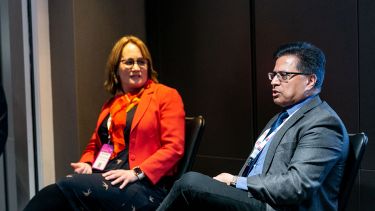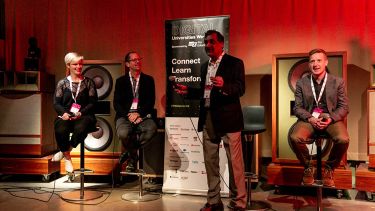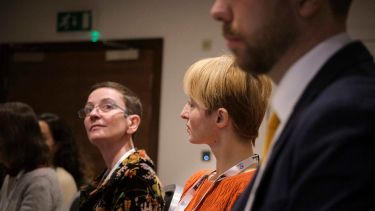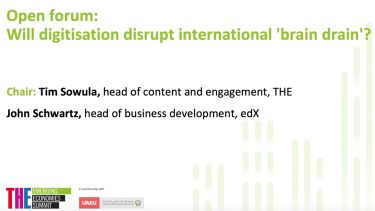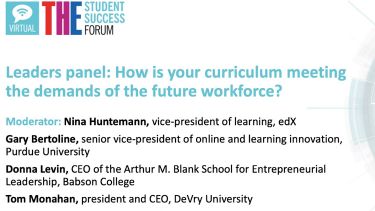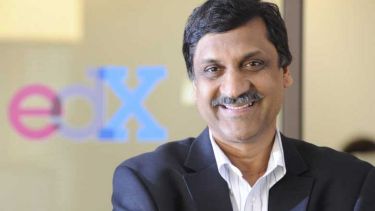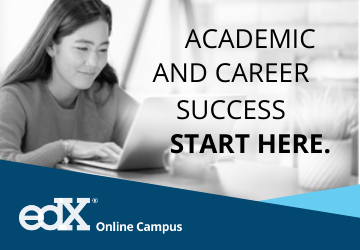Institutions can help students meet the demands of employers by thinking beyond the degree programme and focusing on skills development
The world of work is changing rapidly and so are the skills required to succeed in this new environment. During a session for the THE Student Success Forum, Dil Sidhu, a senior advisor at edX – an open online course provider created by Harvard and MIT – spoke with Richard Hewitt, director of higher education at Emsi Burning Glass – a leading labour market analytics firm – about what it takes to be an outstanding student in terms of being ready for the world of work and how universities can develop satisfied, employed and successful graduates.
By leveraging labour market data, research, and insights from universities and industry partners, edX and Emsi Burning Glass aim to support higher education institutions to understand the needs of the marketplace so they can adapt teaching and learning approaches to meet these needs. Skills are the new currency of employability – people have them, educators teach them and employers need them – particularly as the world of work continues to shift.
“Looking at the data, 58 per cent of the students we surveyed said that the Covid-19 pandemic has impacted their decision to seek additional education,” Sidhu said. “This is for a variety of reasons, one of which is that students are increasingly seeking education beyond their core subject area. A degree path is no longer as linear as it used to be.”
To deliver courses that are better suited to students’ changing educational needs and will create a dynamic workforce, institutions need to offer additional learning opportunities both within and outside of the degree programme in areas that are highly valued by employers.
“If educators know which skills are going to have the most impact on the employability of their students, then skills gaps can start to be addressed within degree programmes,” Hewitt explained. “I think once you start to build out this understanding of skills and combine it with what you know about your students and their destinations, you can really start to enrich the courses that you’re delivering.”
Employers today value “human” and “hybrid” skills as much as technical or subject-area competencies. These are the skills that set candidates apart but can be hard to acquire through traditional methods. The need to diversify and expand learning while also considering faculty and resource constraints has led to the emergence of a sharing economy in higher education.
As a result of the pandemic, we’ve also seen how online learning can have an impact in this area,” Sidhu said. “I think online learning allows higher education providers to share courses with peer institutions, as well as the corporate and government worlds. In addition, it means being able to embrace supplementary skills learning with real-time delivery – you can switch it on and off as and when you need it or as job roles change.”
“There’s an awful lot of investment going on in academic research currently looking at how everything fits together and the different ecosystems of learning, hiring and credentialing,” Hewitt said. “It’s quite an exciting space at the moment. If institutions can understand these ecosystems better, the more opportunities they will have to support their students and, at the same time, the more opportunities students will have to support themselves in entering the labour market.”
Watch the session on demand above or on the THE Connect YouTube channel.
Find out more about edX.


